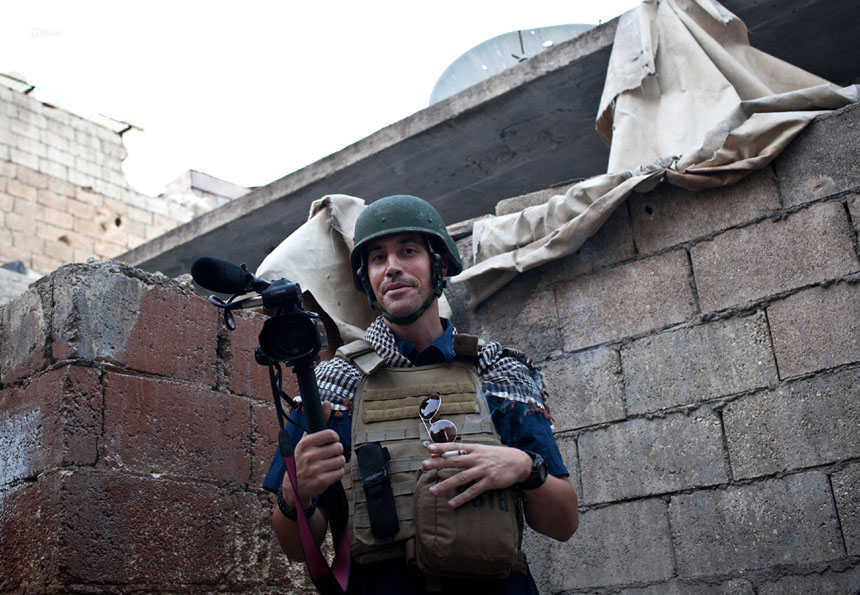Time to minimize risks for freelance journalists in war zones
- By Andrew Lam
 0 Comment(s)
0 Comment(s) Print
Print E-mail Shanghai Daily, September 2, 2014
E-mail Shanghai Daily, September 2, 2014
|
|
|
A file photo of American freelance journalist James Foley, who was executed in the most horrific manner--beheading--by a black-hooded person presumed to be a member of the Islamic militant group known as ISIL or ISIS. Foley has been missing in Syria since November 2012. He was reportedly forced into a vehicle by gunmen, and he was not heard again. At the time of his disappearance, he was working for the GlobalPost. [Photo/Sina] |
Among journalists, there’s a well-known reality: in conflict zones, you have a better chance of surviving if you are a reporter sponsored by a large news outfit than if you are working as a freelancer.
Ian Stewart, a staff reporter for the Associated Press who wrote “Ambushed, A War Reporter’s Life On the Line,” was shot in the head in 1999 while reporting in Sierra Leone. The bullet lodged in his brain, but the AP arranged for a Swiss air ambulance that took him to London where he was promptly saved.
“Freelancers were basically not considered within the jurisdiction of the company’s responsibility,” he once told me. Stewart, who saved the bullet as a souvenir, noted that a freelancer under similar circumstances most likely wouldn’t have been given the same protections.
Another veteran reporter who covered the wars in Afghanistan and Iraq for the AP and who is a friend told me there’s a world of difference in one’s experience as a journalist, depending on whether or not he or she is sponsored by a major news organization. My friend said the infrastructure, insurance, and logistics on the ground were all figured out before she parachuted in.
“You plan ahead,” she said. “You have it figured out with your company what steps would be taken in a potential hostage situation.”
Journalists working for major institutions like the Los Angeles Times and New York Times all had bodyguards, armored vehicles, and bulletproof vests when they worked in war zones.
Kidnapped in Syria, James Foley, a freelancer for the GlobalPost and other news outlets, was rescued, only to be kidnapped a second time in November 2012. Foley was taken to Iraq and beheaded by the Islamic State recently. If the United States fails to meet ISIS’s demands to stop bombing its positions in Iraq, Steven Sotloff, another kidnapped freelance journalist, may meet the same fate, the group threatened.
Freelancers who find themselves in trouble depend on the kindness of the organizations that buy their work. In Foley’s case, GlobalPost claimed it spent millions in an attempt to rescue him, including hiring a security firm and investigating his whereabouts.
Stark contrast
But in general, a freelancer is more vulnerable, often traveling without bodyguards and contingency plans. There’s a viral photo of Foley carrying his camera and sound recorder and other equipment that reminds viewers of how freelancers need to take advantage of the full multimedia spectrum — reporting, photojournalism, sound recording — in order to eke out a living.







Go to Forum >>0 Comment(s)